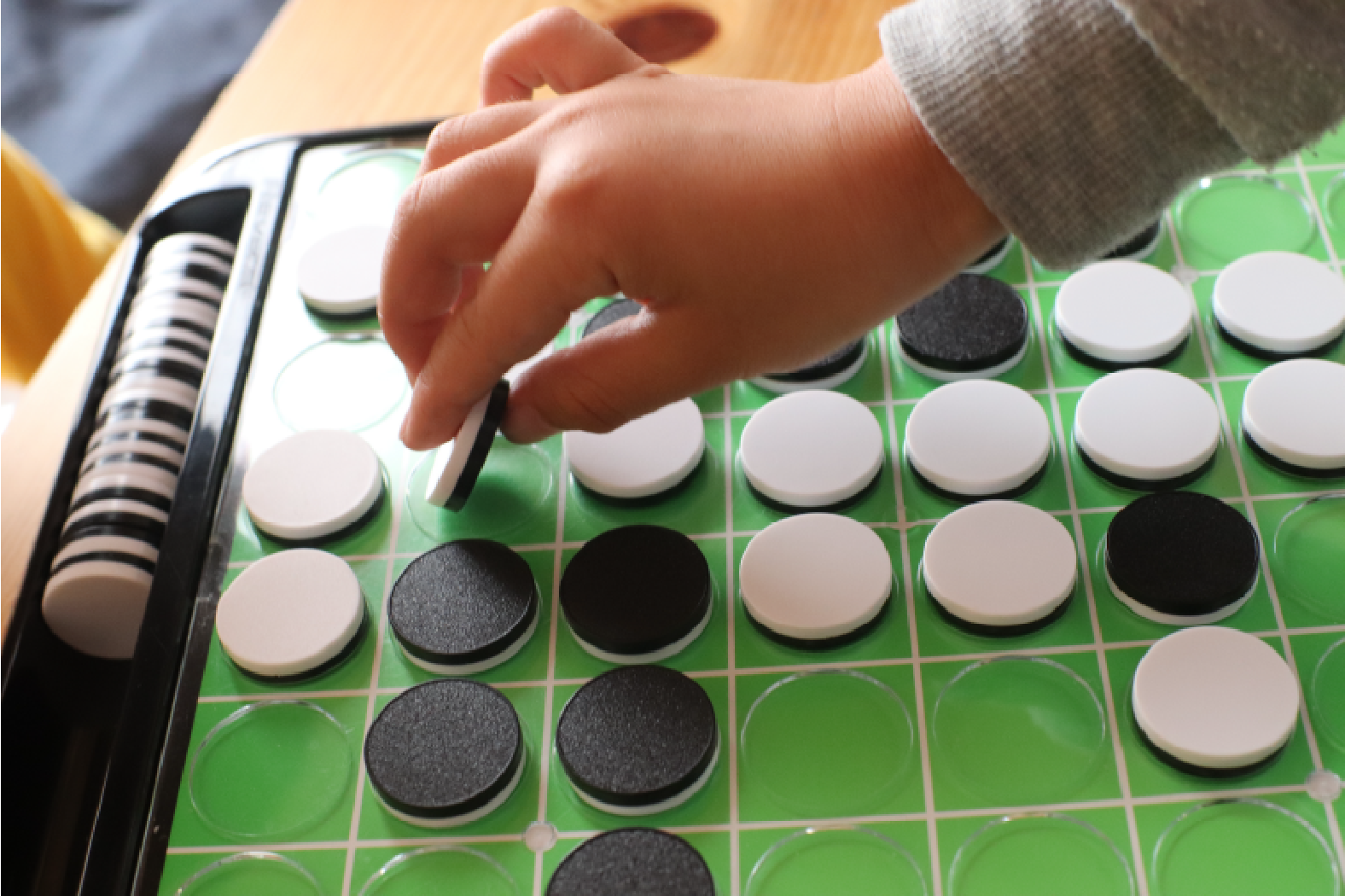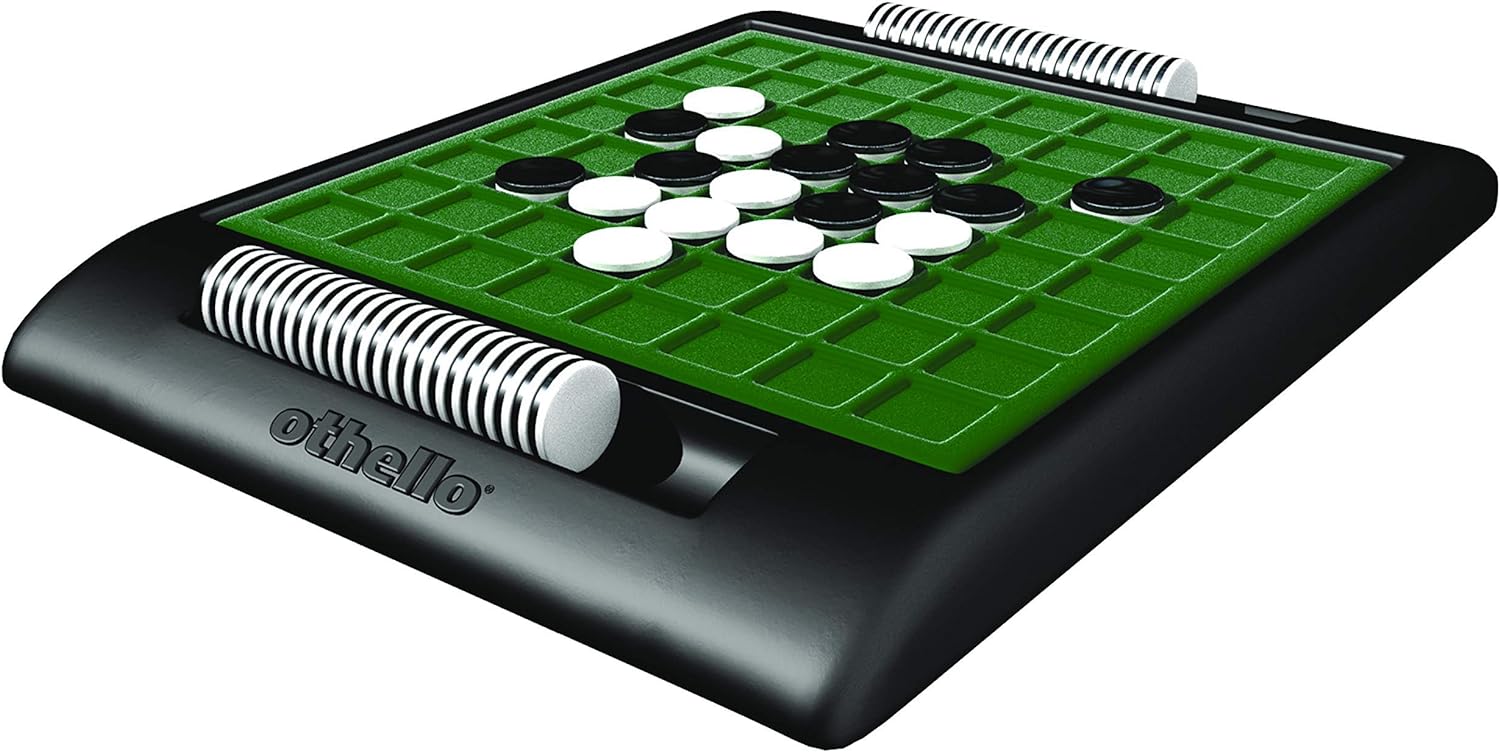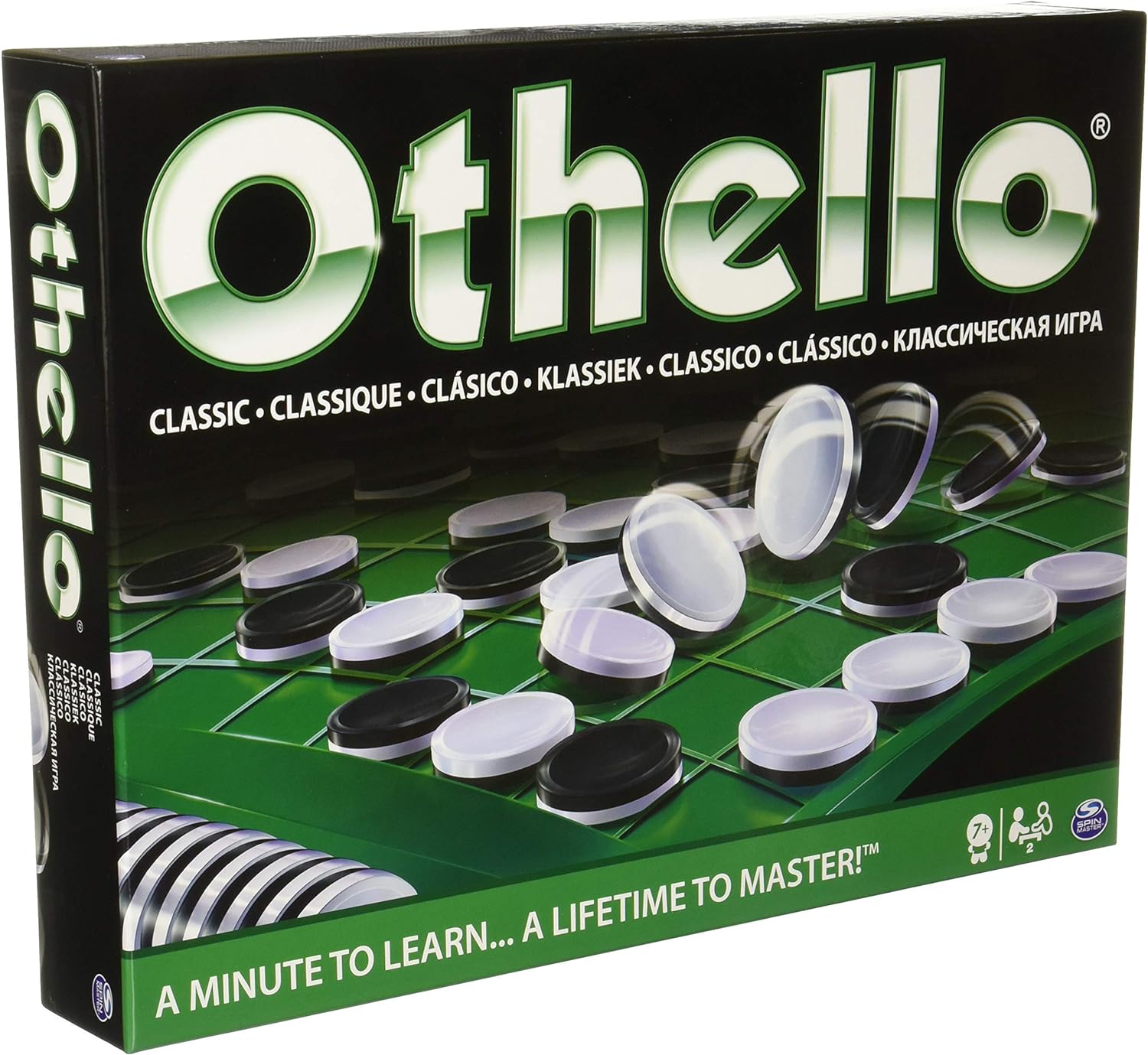Othello

Othello, also known as Reversi, is a deeply strategic two-player board game that is both simple in its rules and complex in its strategies. This game challenges players to flip their opponent’s pieces by trapping them between their own, with the ultimate goal of having the majority of pieces showing their color by the end of the game. Othello’s accessibility combined with its depth of strategy has made it a beloved pastime and a competitive sport worldwide.
Origins and Evolution
Othello was patented in 1971 by Goro Hasegawa but is rooted in an older game called Reversi that originated in England in the late 19th century. While both games share similar rules, Othello starts with four initial pieces in the center of the board, which facilitates a faster and more dynamic game. The modern game of Othello has spawned numerous tournaments, including a World Othello Championship that attracts players from across the globe.
Equipment and Setup

Othello is played on an 8x8 square board, identical in dimension to a chessboard but used differently. Each player has 32 discs, which are black on one side and white on the other. At the beginning of the game, two black discs and two white discs are placed in the center of the board in a diagonal arrangement. This positioning is crucial as it sets the stage for the game's unfolding tactics.
Rules of the Game
The basic objective of Othello is to finish the game with more discs of your color showing than your opponent's. Players take turns placing discs on the board with their assigned color facing up. A valid move must outflank one or more of the opponent’s discs along a straight line (horizontally, vertically, or diagonally). "Outflank" means that a line of one or more opponent's discs is bordered at each end by a disc of the player's color. All of the opponent’s discs between these two discs are then flipped to the player’s color.
This fundamental rule of flipping pieces allows for dramatic shifts in the balance of power on the board and introduces a significant strategic depth to Othello. It is this flipping mechanism that makes Othello a game of both strategy and tactics, requiring players to anticipate moves and counter-moves.
Strategy in Othello

Strategic planning in Othello revolves around position, mobility, and stability. The corners of the board are particularly strategic, as once captured, they cannot be flipped and can subsequently be used to secure more adjacent pieces. Savvy players aim to control the corners and avoid prematurely placing discs close to these crucial areas to prevent their opponent from capturing them.
Mobility, or the number of moves available to a player, is also crucial. A player who limits their moves risks giving their opponent the advantage of controlling the board's pace. Conversely, having too many pieces on the board early in the game can lead to a lack of flexibility, as the opponent might flip multiple discs at once.
Stability refers to pieces that cannot be flipped. Stable pieces are typically those on the edges and corners. Secure control of these areas can lead to a domineering board presence that is difficult for the opponent to overcome.
Phases of the Game
The game can broadly be divided into three phases: opening, midgame, and endgame. The opening involves players positioning their initial pieces to set up for future moves while avoiding premature commitment to specific areas. The midgame is characterized by the majority of pieces being placed and flipped, with players vying for control of the board and crucial strategic points like the corners. The endgame kicks in when few moves are left, focusing on maximizing the number of stable pieces and flipping the last few possible discs.
Psychological Aspects
Like any competitive game, Othello involves psychological elements. Players must not only contend with the visible board but also anticipate their opponent's moves, potentially bluffing or setting traps to lure the opponent into making a disadvantageous move. The dynamic of changing advantage can also affect a player’s psychological state, requiring not just strategic acumen but also mental resilience.
Competitive Play
Othello has a vibrant competitive scene. Tournaments often feature timed matches, adding pressure and requiring quick thinking and rapid decision-making. The World Othello Championship, for example, gathers the best players from around the world to compete for the title, underscoring the game’s global appeal and the high level of skill it demands.
Othello is a testament to the beauty of board games, where simple rules can give rise to profound strategic depth. Each game of Othello is a new puzzle to solve, a battle of wits that challenges the mind and sharpens one's tactical abilities. Whether played casually at home or competitively in tournaments, Othello offers a rich, rewarding experience that has captured the interest of players for decades.
As an Amazon Associate, this site earns commission from qualifying purchases.